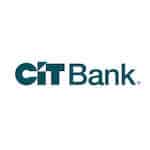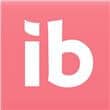Some of the best ways to reach your financial goals and manage your money, is by using various personal finance tools or budgeting apps.
Thanks to the digital age we live in, we have access to amazing products that make saving money, investing, financial planning, or budgeting that much easier.
Yet, there are TONS of personal finance products and apps out there to choose from. The question is, how do you know which ones are best?
While your unique goals, interests, and preferences may vary from others, I find some of these in this list to be the best. These were based on how helpful they are, their ease of use, quality, and more.
Again, there are a lot more than what I have listed, so feel free to do your own additional research.
But, these below have helped my friends, myself, and countless others in their pursuit of better finances and stop living paycheck to paycheck. And another bonus, some of these are free to use. Score.
Personal Finance Tools (Budgeting, Saving, Investing)
While you should be focusing on all three: budgeting, saving, investing, pending where you are financially you may only being starting with one or two of these. Totally cool!
But I decided to include a mixture of these as I felt they are all key to helping your financial future.
But First…Before getting into each section, I wanted to start with these two financial tools: Personal Capital and Credit Sesame. Here’s why:

Personal Capital
Probably one of the most popular wealth management tools, Personal Capital has dominated this space. Their platform is free to use and gives you insights on your money and net worth.
They also offer calculators, reports, and some paid services as well if you need additional help. You can manage your expenses, see all your investment accounts, and more.
Even if you think your net worth is negative, it’s important to keep tabs on the big picture of your money and financial health.
It has kept me motivated and conscious of what I’m doing with my money and how my efforts are making an impact. Sign-up for free here.

Credit Sesame
Credit Sesame is also 100% free to use and gives you an in-depth look at your credit history.
Your credit score is important to maintain and monitor as it affects getting loans (auto, mortgage, personal), how low your interest rates might be, getting credit cards, and more.
You’ll get detailed information, a letter grade, tips on how to improve, identity theft solutions (also for free), personalized savings advice like the highest APY rate for a new savings account, competitive rates for a new mortgage, or a car loan.
I also really like Credit Karma, but one cool thing about Credit Sesame (besides the above) is they offer an additional layer of protection with $50,000 identity theft insurance free to all members. Sign for Credit Sesame here.

Budgeting Tools
When you are first getting started with your finances, you should be putting a personal budget together. Not the most exciting part of financial management, but necessary. Luckily, budgeting can be done a bit easier thanks to some of these personal finance tools and apps below.
Mint
Probably one of the most popular budgeting apps, Mint continues to be a preferred choice. The app will automatically update and categorize your transactions, which shows how you’re spending in real time.
You can also track when you need to pay bills and set budgets that provide alerts if you are getting dangerously close to your set limits. Learn more about Mint and start to manage money better here.
YNAB (You Need A Budget)
A popular budget software is YNAB, which teaches and helps you set your own budget, get out of debt, and save money.
They provide tracking, reports, online support, and help you build your own budgeting plan using their four rule method to budgeting.
This platform is not free to use, but you get a free trial and it costs only $84/year to use after. Well worth it for the amount of money it can save you and the impact it can have on your finances. Learn more about YNAB here.
PocketGuard
One app that I recently discovered is PocketGuard. This budgeting app is available for both Android and iOS and can help you track your spending, make a budget, help lower bills, and provides recommendations to how you can save more.
But they have other features where you can link credit cards, investments, loans, etc. to get an overall picture of your finances.
PocketGuard is also free to use, but with some limitations. If you want extended services and options, there is a paid version as well. Learn more about PocketGuard here.
| Budgeting Tools & Apps | Category | Getting Started |
|---|---|---|

| Budget/Money Management | Learn More |

| Budget/Money Management | Learn More |

| Budget/Money Management | Learn More |

Saving Money Tools
Everyone likes saving money right?Whether that is putting money away in savings account, saving money from interest on debt, or getting cash back on purchases. Below are a few personal finance tools to help you save more money.
CIT Bank
Most people are already established with a bank, whether a well-known bank or maybe a credit union.
However, there are a few online banks that offer much higher interest on your money. CIT Bank is an online savings account that offers tiered 2.4% interest to help accelerate your savings.
Keep your current bank, but open a free “savings builder” account with a $100 minimum to get started. They’ve been voted one of the best online banks by Bankrate, GoBankingRates, and others. And they are FDIC insured to ensure your money is protected. Learn more and open your account here.
Credible
To save you money and to simplify your payment plan, refinancing your student loans can be a solid choice. This is where Credible should be your go-to for helping you find the best lender. There are a lot of other platforms like this, but many can be sketchy or do not provide great service.
Credible works with the best lenders and it only takes filling out a short survey to find your pre-qualified rates. It also does not affect your credit score. Oh, and it’s completely free to use.
Although I have personally not refinanced my student loans, if you are considering it I would check out the most trusted platform of them all. Get started with refinancing your student loans here.
Ibotta
Looking to get cash back on your purchases? Ibotta is one of the most popular and well-recognized apps for just that. You’ll get money back when you make a purchase at selected stores, restaurants, and hotels.
After downloading and signing-up, you can select your favorite stores and outlets (it’s a huge list of 300+ and counting). You’ll get coupons to save money at all their listed outlets. And when you make purchases at stores in their system, Ibotta gives you cash back too (make sure you keep the receipt to snap a pic in the app!)
You can also earn money by referring a friend and even through different sign-up bonuses. Sign-up for your free Ibotta account here.
| Best Money Saving Tools | Category | Getting Started |
|---|---|---|

| Savings Account | Learn More |

| Student Loan Refinancing | Learn More |

| Saving Money/Cash back | Learn More |

Investing Software Tools
In order to reach your financial goals and grow your wealth, investing will be pivotal. And as you probably are aware, there is no shortage of investing platforms and apps to choose from either. This section has the most recommendations because I’m passionate about investing and diversifying.
Vanguard
My absolute favorite investing platform is Vanguard, hands down. It’s where I manage my IRA’s and also have money in a brokerage account as well.
The investment company manages over $5 Trillion assets and has some of the best low-cost index funds to invest in.
If you are looking to rollover a 401k, open an IRA, or start a college fund, definitely check out Vanguard. You can learn more about them here.
M1 Finance
Like diversifying what assets you invest in, you can also diversify where your money for investments go. If you are looking for a more “hands-off” approach with investing, M1 Finance can be a perfect fit for you.
You can invest commission-free, get fractional share investing, and there are no hidden fees. Plus, they help tailor your portfolio automatically to your investment goals. Learn more and get started for free.
Blooom
Blooom is an online investment software adviser that helps manage individual participant accounts in employer sponsored retirement plans.
You can get a free 401k or IRA portfolio analysis with recommendations and they also offer management services for a flat fee to help you get the most out of your investments.
If you have a 401k at your company and want to get an analysis with recommendations, Blooom will help you get the most out of your investments. Get started for free here.
Fundrise
Diversifying your investments is crucial for long term success. A great way to do so is investing in real estate.
However, if you are looking for a more hands off approach, Fundrise is a great choice. The platform welcomes non-accredited and accredited investors.
You can invest your money based on your goals, in a portfolio that is filled with numerous real estate projects. Fundrise has become the most trusted and popular platform for real estate crowdfunding, with average returns of 8-12%. Sign up for free to get started.
Groundfloor
Another way to diversify your real estate investments is with Groundfloor.
The company primarily focuses on investing in single-family homes instead of specific portfolios like Fundrise. This means you have a bit more control on what real estate assets you choose to put money towards.
Groundfloor also has the lowest entry fees, where you can get started with just $10! If you are looking to test out real estate crowdfunding, this might be the place to start. Earn $10 towards your first investment when you sign up here.
| Best Investing Tools | Category | Getting Started |
|---|---|---|

| Investing Account | Learn More |

| Automated Investing | Learn More |

| Investment Advisor | Learn More |

| Real Estate Crowdfunding | Learn More |

| Real Estate Crowdfunding | Learn More |
What finance software are you using or like to use? How do you keep track of expenses and manage your personal budgets? Let me know in the comments below!
